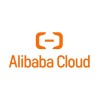When it comes to building a website, one of the first decisions you'll need to make is choosing the right domain extension. This seemingly small choice can have significant implications for how your website is perceived and how it performs online. Among the most popular and recognizable domain extensions are .org and .com. But what's the difference between them, and how do you decide which one is right for you? Let's dive in and explore.
What is a Domain Extension?
A domain extension is the last part of a web address, appearing after the “dot” in a URL. Also known as a top-level domain (TLD), this extension helps categorize websites and gives users an idea of what the website is about or who runs it. Common examples include .com, .org, .net, and .edu.
The History of .Org and .Com
Origins of the .org Extension
The .org domain was established in 1985, primarily intended for non-profit organizations. It was created to provide a space for groups that didn’t fit into the more commercially-focused .com or the network-oriented .net.
Origins of the .com Extension
The .com domain also dates back to 1985 and was originally intended for commercial entities. It quickly became the go-to domain for businesses looking to establish an online presence and has since become the most widely used domain extension globally.
Understanding .Org
Intended Use for .Org Domains
The .org extension is traditionally used by non-profit organizations, charities, and educational institutions. It's seen as a sign of trustworthiness and credibility, often associated with organizations that aim to provide information or services for the public good rather than for profit.
Examples of Organizations Using .Org
- Wikipedia.org: A free online encyclopedia
- RedCross.org: The official website of the American Red Cross
- UNICEF.org: The United Nations Children's Fund
Understanding .Com
Intended Use for .Com Domains
The .com extension is short for “commercial” and is primarily used by businesses. It's the most recognized and trusted domain extension, suitable for any commercial entity or personal website.
Examples of Businesses Using .Com
- Google.com: The world's leading search engine
- Amazon.com: The largest online retailer
- Forbes.com: A leading source for business news and financial information
Key Differences Between .Org and .Com
Purpose and Perception
- .Org: Conveys a sense of community, trust, and non-commercial intent.
- .Com: Suggests a commercial, business-oriented purpose and is seen as professional and credible.
Availability and Popularity
- .Org: While popular, .org domains are often more readily available than .com domains.
- .Com: The most popular domain extension, which can make finding your desired domain name challenging.
Pros and Cons of .Org
Advantages of Using a .Org Domain
- Conveys trust and authority, especially for non-profits
- Often available for a wider range of domain names
- Typically associated with valuable, informative content
Disadvantages of Using a .Org Domain
- May give the impression of being non-profit, even if you're not
- Less marketable for commercial purposes compared to .com
Pros and Cons of .Com
Advantages of Using a .Com Domain
- Universally recognized and trusted
- Perceived as professional and credible
- Best for businesses and commercial ventures
Disadvantages of Using a .Com Domain
- High competition for domain names
- Some desirable names may be expensive or already taken
When to Choose a .Org Domain
Best Use Cases for .Org
If you're running a non-profit, charity, educational institution, or any organization that focuses on community service or public interest, a .org domain is a great choice. It immediately signals your intent and can help build trust with your audience.
Considerations for Choosing .Org
Even if you're a for-profit business, you might choose a .org domain to convey authority and trustworthiness, especially if your business involves providing information or resources rather than selling products.
When to Choose a .Com Domain
Best Use Cases for .Com
For any commercial business, personal brand, or startup, a .com domain is typically the best choice. It’s the most widely recognized and trusted TLD, making it ideal for any professional or commercial endeavor.
Considerations for Choosing .Com
While the .com extension is highly desirable, the competition for names can be fierce. Be prepared to get creative with your domain name or consider purchasing a pre-owned domain if necessary.
Cost Comparison
Average Cost of .Org Domains
Generally, .org domains are priced similarly to .com domains, ranging from $7 to $15 per year. However, prices can vary depending on the registrar and any promotional deals available.
Average Cost of .Com Domains
The cost of .com domains also falls within the $7 to $15 per year range. Due to their popularity, some .com domains may be more expensive if they are considered premium names.
Domain Availability
Availability Challenges for .Org
While .org domains are popular, they tend to have more availability compared to .com. This can make it easier to find a suitable domain name for your organization.
Availability Challenges for .Com
Due to the high demand for .com domains, finding an available name can be difficult. Many desirable names may already be taken, requiring you to think outside the box or purchase a domain from the secondary market.
SEO Implications
How .Org and .Com Affect SEO
From an SEO perspective, the domain extension itself has little impact on search rankings. However, user trust and recognition play a role. A .com domain might be slightly favored due to its familiarity and trust, but a well-optimized .org site can perform just as well.
Best Practices for SEO with .Org and .Com
Focus on creating high-quality content, building backlinks, and optimizing your site for keywords relevant to your audience. Whether you choose .org or .com, these SEO strategies will help your site rank well.
Registering Your Domain
Steps to Register a .Org Domain
- Choose a reliable domain registrar.
- Search for your desired .org domain name.
- Add the domain to your cart.
- Complete the registration process by providing the necessary information and payment.
Steps to Register a .Com Domain
- Select a reputable domain registrar.
- Search for available .com domain names.
- Add your chosen domain to the cart.
- Provide the required information and complete the purchase.
Conclusion
Choosing between a .org and a .com domain extension depends on the nature and goals of your website. .Org is ideal for non-profits and organizations focused on community service, while .com is perfect for commercial entities and professional websites. Consider your audience, purpose, and the availability of your desired domain name when making your decision.
FAQs
What are the main differences between .org and .com?
.Org is typically used for non-profit organizations, while .com is used for commercial businesses.
Can a for-profit business use a .org domain?
Yes, but it may give the impression of being a non-profit or community-focused organization.
Is it better to use .com for SEO purposes?
The domain extension itself doesn’t significantly impact SEO, but .com domains are widely recognized and trusted.
Are .org domains cheaper than .com domains?
The cost is generally similar, but some premium .com domains can be more expensive.
How do I choose the right domain extension for my website?
Consider your website’s purpose, audience, and the message you want to convey when choosing between .org and .com.
Read more: Alitech Blog
https://www.hostingbyalitech.com/
Tags: .org vs .com, domain extensions, .org domain, .com domain, difference between .org and .com, choosing a domain extension, domain name registration, website domains, SEO and domain extensions, non-profit domains, commercial domains, domain extension comparison, website SEO, domain availability, best domain for business, website domain cost, register domain name, domain extension guide, Rapid URL Indexer, Local SEO Rapid URL Indexer, Rapid URL Indexer Review, Rapid URL Indexer Reviews, Google Search Console vs Rapid URL Indexer, SEO Services Rapid URL Indexer, Online Reputation Management with Rapid URL Indexer, SEO Agency Rapid URL Indexer, SEO Tool Rapid URL Indexer, Semrush Rapid URL Indexer, SEO Software Rapid URL Indexer, Search Engine Optimization Rapid URL Indexer, Backlinks Rapid URL Indexer, Ahrefs Rapid URL Indexer, Why Real SEOs Use Rapid URL Indexer, (link unavailable), SEO Service Rapid URL Indexer, Link Building Rapid URL Indexer, Best SEO Agencies Rapid URL Indexer, Rapid URL Indexer Login, SEO Tools like Rapid


















